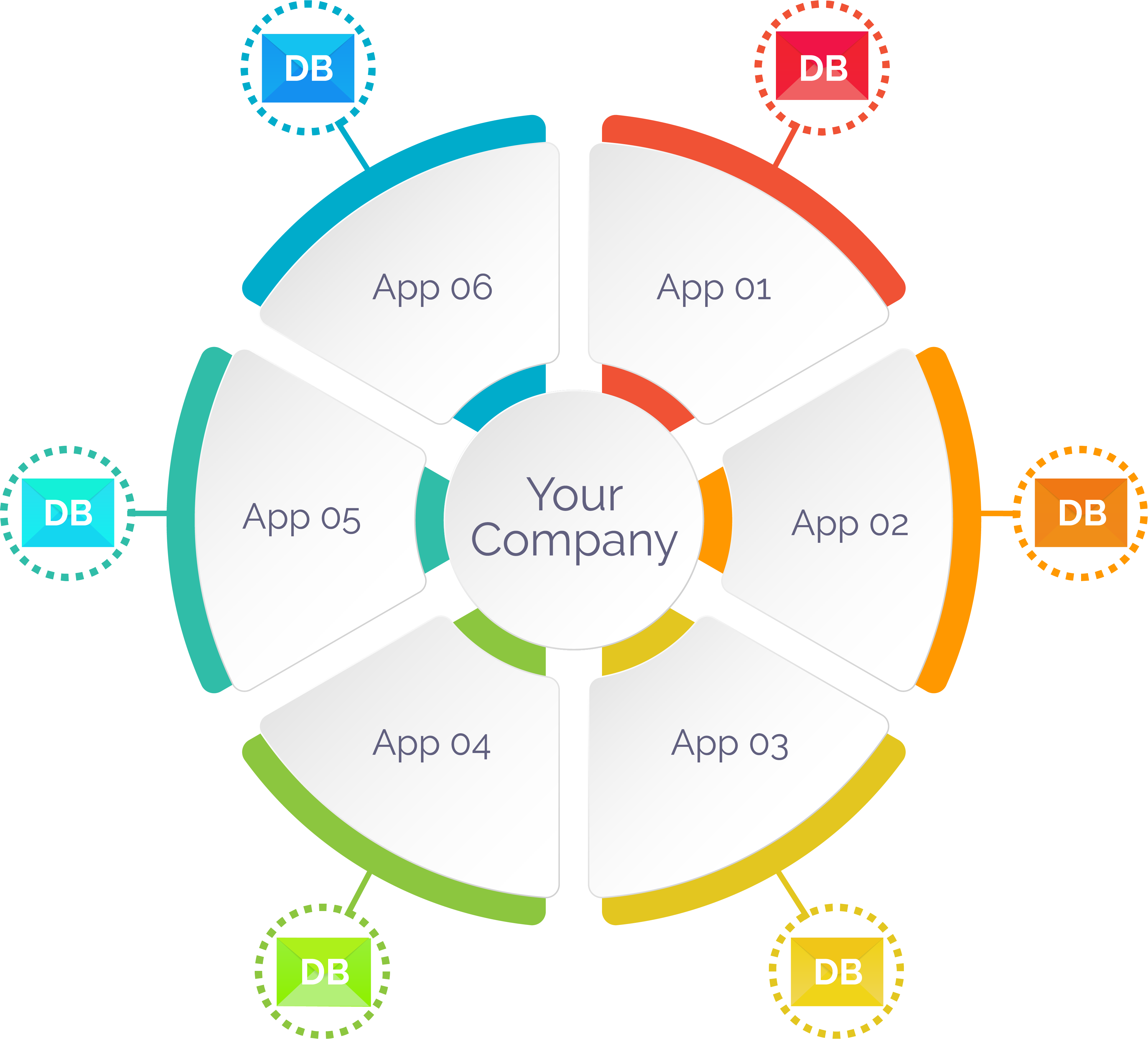
The Software Industry Is Broken - Death by a Thousand Apps
Jan 4, 2025
The Software Industry Is Broken - Death by a Thousand Apps
If you are like most enterprises, you have hundreds or even thousands of apps.

Each app drags along its own database—sealed off by the vendor's restrictions. Even worse, the industry has come to accept this as a "best practice."
What does that mean for you?
1. Siloed Data
Your organization's "brain" (its core business data) is splintered across multiple databases—accounting, customer support, CRM, marketing, HR, and more. Because these systems rarely talk to each other effectively, your teams waste hours digging through siloed data, copying and pasting, and emailing spreadsheets back and forth. Meanwhile, important insights remain hidden or outdated.
2. Duplicated Data
Picture a global sql-commerce company handling orders, shipping, customer service, and marketing. Each function needs and stores the same customer data—like addresses and phone numbers—in separate databases. A single phone-number update triggers a manual cleanup across multiple systems. This duplication leads to endless "Which record is right?" moments, creating confusion and rework instead of progress.
3. Integration Hell
Eventually, someone says, "We need these apps to talk to each other." You start building integrations—or you pay a vendor to do it. Each new integration adds complexity and becomes a potential point of failure. Upgrading or adding an app can break half a dozen existing connections. Your IT team turns into digital plumbers, constantly patching leaks instead of driving innovation.
Think of an old house with bad plumbing. You fix one leak, and four more spring up. Over time, you spend a fortune on patch jobs instead of investing in real improvements. That's precisely what happens when you're stuck in "integration hell."
4. Rising Costs
Every new application comes with its own (often separate) database. That means you're on the hook for:
- Additional licenses or subscriptions
- Maintenance and support contracts
- Specialized staff to manage or integrate it
It's like a family having five different cell phone providers. Sure, each plan might look good on paper, but juggling them all drains time, money, and sanity. You're constantly paying extra fees, juggling multiple logins, and calling different support lines—just to keep everyone's phones working.
5. Limited Visibility and Automation
When your data is locked in separate databases, you can't run accurate analytics or automate cross-department processes. Instead, you hack together precarious integrations that break at the worst times.
Imagine a manufacturing company whose sales invoices live in one system while expense reimbursements sit in another. The finance team exports both into spreadsheets, merges them manually, and prays for accuracy. Real-time financial tracking? Forget it. The data never flows seamlessly.
Why This Matters
- Your intelligence stays trapped. The "aha" insight you need is stranded in another department's silo. By the time you access it, it's already stale.
- Integration hell drains your budget. With each new app, you're forced to maintain more integrations—and more things can break.
- Costs creep ever higher. More databases mean more hardware, more subscriptions, and more management headaches. Technology ends up babysat, not leveraged.
Bringing It All Together
The real problem is that the software industry has normalized slicing your data into dozens of isolated chunks. Because apps come with their own databases, you end up forced into a fragmented system you can't directly control.
The Solution: Centralize and Take Control
- Cut costs. Stop paying for duplicate subscriptions and never-ending integration projects.
- Unlock real-time insights. Gain a unified view across different departments to fuel better decisions and faster innovation.
- Increase agility. Let your teams directly collaborate on a single source of truth.
- Simplify your tech stack. Spend more time driving your business forward and less time cobbling systems together.
As your organization grows, ask yourself how easily you can reach the data beneath each app. Demand solutions that don't lock you into a thousand vendor-specific databases but rather empower you to unify your data—so that you control the future of your business.
Data is the lifeblood of your organization, and you can't afford to see it drained away by a thousand conflicting apps. By tackling this issue head-on, you avoid climbing integration costs, eliminate data confusion, and light the way toward real innovation.
The Yolm Platform is designed to help you centralize your data and take control of your business.